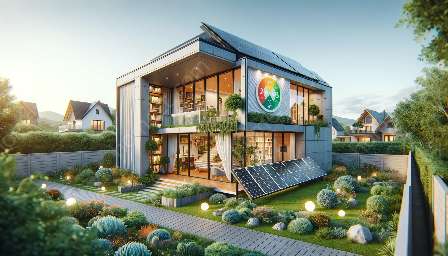Introduction
Energy-efficient home renovations and remodeling are becoming increasingly popular as homeowners seek to reduce their carbon footprint and lower their energy bills. With the advancement of technology and increased awareness of environmental sustainability, there are now numerous options for making homes more energy-efficient.
Benefits of Energy-Efficient Home Renovations and Remodeling
Choosing to make your home more energy-efficient through renovations and remodeling has numerous benefits. Not only do you contribute to a greener environment, but you also save money on utility bills. Additionally, an energy-efficient home provides a more comfortable and healthier living space for you and your family.
Key Considerations for Energy-Efficient Home Renovations and Remodeling
- Insulation: Proper insulation is essential for energy-efficient homes. Adequate insulation helps maintain a consistent temperature inside the house, reducing the need for heating and cooling.
- Energy-Efficient Windows and Doors: Upgrading to energy-efficient windows and doors can significantly reduce heat loss and air leakage, thus decreasing the overall energy consumption of your home.
- High-Efficiency HVAC Systems: Installing high-efficiency heating, ventilation, and air conditioning (HVAC) systems can greatly decrease energy usage while providing better indoor air quality.
- Renewable Energy Sources: Consider incorporating renewable energy sources such as solar panels or geothermal heat pumps to further reduce your reliance on traditional energy sources.
- Smart Home Technology: Embracing smart home technology, including programmable thermostats and energy-efficient appliances, can optimize energy usage and provide greater control over your home's energy consumption.
Trends and Innovations in Energy-Efficient Home Renovations and Remodeling
As the demand for energy-efficient homes continues to rise, innovative solutions and technologies are emerging to meet these needs. Some notable trends include:
- Passive House Design: The passive house concept focuses on creating ultra-energy-efficient buildings that require minimal heating and cooling.
- Net-Zero Energy Homes: These homes produce as much energy as they consume, often through a combination of high energy-efficiency and renewable energy systems.
- Green Building Materials: The use of sustainable and eco-friendly materials in home construction and renovations is gaining traction, contributing to both energy efficiency and environmental conservation.
- Energy Monitoring and Management Systems: Advanced energy monitoring systems allow homeowners to track and optimize their energy usage, leading to improved efficiency and cost savings.
Conclusion
Energy-efficient home renovations and remodeling are not only beneficial for the environment but also for homeowners in terms of cost savings and comfort. Embracing the latest trends and technologies in energy efficiency can transform a standard home into a sustainable and comfortable living environment.


